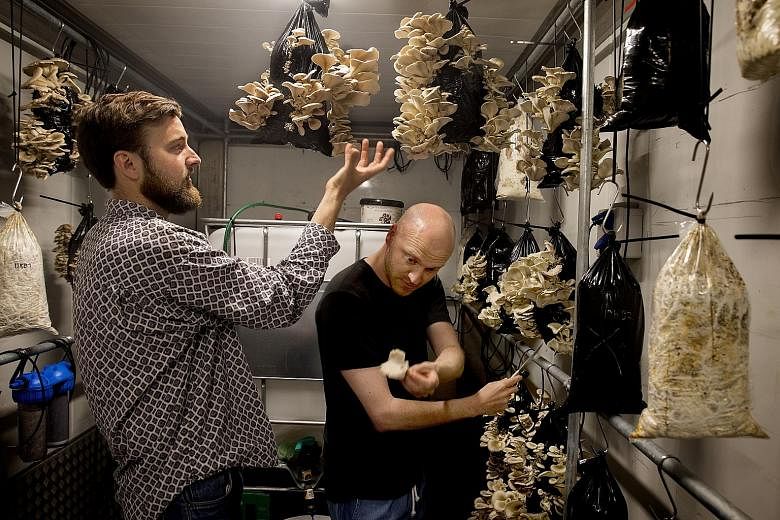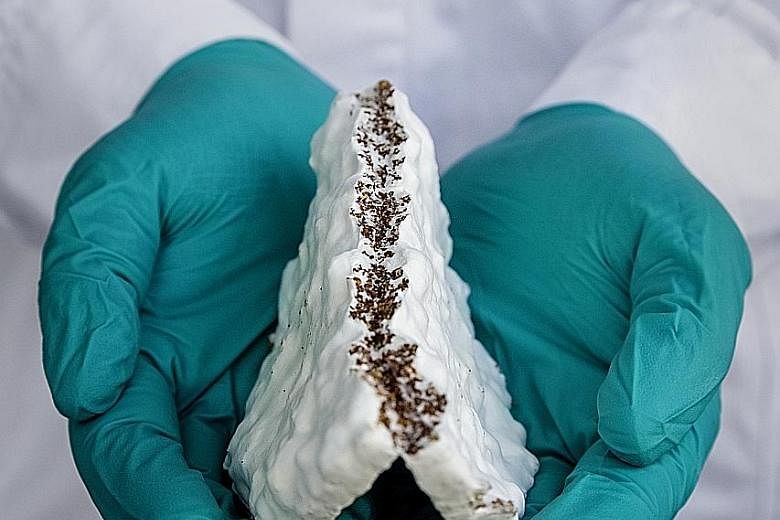DENMARK • Two large containers sit in a parking lot at the Danish biotech company Novozymes, not far from Copenhagen.
"The blue container is 'Summer', and the yellow container is 'Autumn'," said Mr Tobias Lau.
When he opened the door to the yellow container, cold vapour escaped. "This is to create the ideal growth conditions for our mushrooms, and as you can see, it works really well," Mr Lau said, as he stepped in.
Along the walls, there are black plastic bags filled to the brim with coffee grounds. Clusters of ready-to-eat oyster mushrooms grow out of the sides. Mr Lau, who partnered Mr Thomas Harttung, co-founder of organic food supplier Aarstiderne, created the company Beyond Coffee in 2016.
They use coffee grounds instead of soil to grow mushrooms.
A team of scientists, spearheaded by Professor Lene Lange from the Technical University of Denmark, has been studying Beyond Coffee's project, which is funded by a grant from the Innovation Fund Denmark. The scientists are interested in mycelium - the large network of white hyphae growing inside the coffee grounds.
Mycelium is a goldmine for proteins. The scientists are eager to harvest the proteins and convert them into a powder that can enrich all types of feed and foods in terms of both taste and protein content.
Mr Lau said: "When you pour boiling water over the crushed coffee beans and extract the taste from them, you only use 0.2 per cent of their total biomass. We use the remaining 99.8 per cent to grow food in the form of oyster mushrooms.
"But the fruiting bodies emerging from the bag comprise only the tip of the iceberg; the mycelium is an untapped resource, and we would like to get our hands on it before the mushroom-enriched coffee grounds either end up being used as fertiliser or are sent to a biogas facility or an incineration plant."
Dr Lange also believes the protein powder could be used to improve the taste of plant-based "meat" and infuse it with more proteins.
The scientists have partnered Mr Matt Orlando, chef-owner of the Danish restaurant Amass and a former chef at Noma, one of the world's most famous restaurants.
He will be conducting experiments to find out if the new protein powder can be used to create delicious dishes.
"When we are approved by the food authorities, we will gradually start distributing our product to consumers," said Dr Lange.
"If we are to have any hope of feeding the increasing number of people on our struggling planet, we need to find better ways of making the most of our resources. In this struggle, mushrooms are vital."



